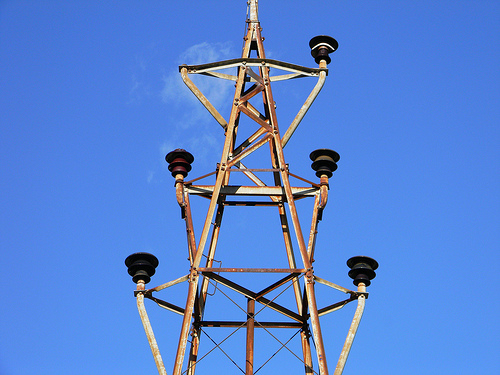 Author: Barry Randall, Crabtree Asset Management
Author: Barry Randall, Crabtree Asset Management
Covestor model: Crabtree Technology
How is Facebook like prison? You have a profile picture; you spend a lot of your time there writing on walls; insiders desperately want out; and you’re constantly worried about being ‘poked’ by people you don’t know.
Of course, with over 900 million monthly users, Facebook (FB) is a prison that apparently people are mostly trying to break into, not out of.
A couple of weeks ago (pre-IPO), I wrote how Mark Zuckerberg needed to stop worrying about Wall Street and just keep the world at large informed of his plans for the company. The future would take care of itself. Of course, that was before Wall Street, in the form of Facebook’s lead underwriter Morgan Stanley (MS) and the Nasdaq stock exchange messed up Facebook’s IPO.
OK, Zuck, maybe your antipathy to going public wasn’t so naïve after all.
And now that the lawsuits are flying and the arbitrators are warming up their calculators, and the New York Stock Exchange is on Line 2 wondering if maybe Facebook should reconsider its choice of stock exchanges.
I’ll let others hash out whether Facebook is a better “value” in the low $30s than it was at the IPO price of $38. (Though it’s pretty silly to start using a value framework to gauge whether a growth stock is a good investment…OK, I just promised I wouldn’t try to evaluate Facebook at its new low, low price.)
But let’s get back to prison, so to speak. And specifically, let’s consider the upside of prison: a captive audience. During the fallout from the botched IPO, I watched on television as an enterprising reporter took to the streets to ask random people whether they’d rather give up Facebook or Google (GOOG), if they could only use one going forward? The reporter was clearly looking for validation that Facebook is a fad that will soon pass. But the first 10 people she asked all said they would give up Google. One of the Facebook-happy interviewees even used the word, “addicted.”
Hmmm… it’s not very often that customers of a product or service will cop to being addicted, stuck in a prison of their own making. Yes, tobacco products come immediately to mind. (Along with certain kinds of hot sauce: ”must….have…more…!”). In the context of doing business, addiction means one thing to the seller: pricing power.
And the recent trend of in increasing mobile access to Facebook seems like the kind of problem a lot of companies would love to have. Yes, the fact that Facebook is not serving ads to mobile devices in the same manner that they do to tablets, laptops and PCs means that there will have to be a re-calibration of the company’s revenue growth trajectory. Which is a fancy way of saying that in the short run, they’re in trouble because the stock valuation is based on growth, not cash flow.
But longer term (a few years?), Facebook is probably going to be able to serve ads (or sponsored stories or whatever) to mobile devices and those devices may in fact grow larger to accommodate that very purpose. (The iPhone 5 reportedly will have a screen that is 18% bigger than that of the iPhone 4.) And conveniently, Facebook’s fastest growth is overseas, where Internet access primarily takes place on mobile devices.
In the meantime, having 900 million enthusiastic (addicted?) users should keep the cash flow coming long enough to pay for the post-IPO legal mess.
I basically never participate in IPOs, preferring to allow a new issue to “season,” and let the full supply and demand curves reveal themselves over time. IPOs are basically a cynical exercise, with an underwriter controlling both supply and demand and creating an artificial reality (and price). Yes, I miss out on bottle rockets like LinkedIn (LNKD) which has doubled since its IPO. But I also miss out on whoopee cushions like Groupon (GRPN) and, yes, Facebook.
While I was writing this column, I happened to get my monthly email reminder that I, “have 18 friend requests” [including my mother!] waiting for my acknowledgment. Facebook doesn’t know I’m only on Facebook because my firm advertises there. I’ve never accepted a single “friend” request and likely never will. I’ve got enough friends in the real world.
But I’m smart enough to know I’m not representative of the average Facebook user. And generationally, 51-year-old men like me are on the way out, replaced by younger folks for whom Facebook is arguably the killer app that runs their lives.
Killer? Prison? It all makes sense now.


